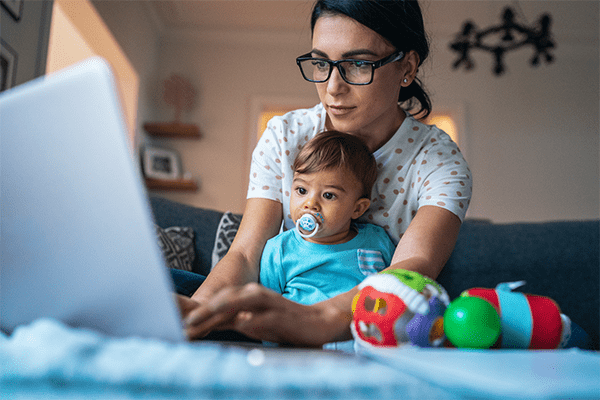5 Things to Look for in a Co-Parenting Class
How to choose the right co-parenting class to help you and your kids after divorce or separation.
- 4 min read
- education
- family law
- guest author

Why co-parenting classes are important
Divorce or separation is one of the hardest things parents go through. Many places require parents to take a co-parenting class to help them deal with this tough time. These classes cover important topics and teach skills to make things better for everyone, especially the kids.
Skills you learn in co-parenting classes
In a good class, you learn important skills like:
- Using “I” messages to express yourself without blaming the other parent.
- Listening actively to understand the other parent’s point of view.
- Managing your emotions, like anger and fear.
- Problem-solving to find solutions that work for everyone.
- Making polite requests to avoid conflicts.
These skills help you work better with your ex-partner and reduce stress for your kids. It’s important for children to see their parents working together and supporting each other, even if they don’t live together anymore. In addition, using a co-parenting app like TalkingParents helps offer better chances for healthy communication and can support the skills learned in your classes.
5 things to look for in a co-parenting class
1. Does the class help you remember and use what you learn?
Some classes just give you information, but the best classes teach you skills you can remember and use. Look for classes that include activities and practice exercises. These help you learn and use new skills, like good communication and problem-solving. A recent study of the instructional designs of popular online courses showed that only one course demonstrated significant recall of content after two weeks.
2. Does the class keep your attention?
A good class should be interesting and keep you paying attention. Classes that use videos, discussions, and interactive activities are usually more engaging. When a class is interesting, you are more likely to remember what you learn.

3. Does the class focus on the most important issues?
The best classes talk a lot about the biggest problems that come with divorce, like kids feeling stuck in the middle or losing contact with one parent. These classes teach you how to avoid these problems and how to handle them if they happen.
4. Does the class teach new skills?
Good classes don’t just tell you what to do; they show you how to do it. They teach you new skills and let you practice them. Skills like using “I” messages, listening carefully, and managing your emotions are very important. These skills help you communicate better and reduce conflict.
5. Does the class have evidence of positive results?
It’s important to choose a class that has been proven to work. Look for classes that have evidence showing they help families. Some classes do tests before and after to see how well parents and kids are doing. This way, you know the class really helps.
Additional considerations when choosing co-parenting classes
- Court approval: Ensure the class is approved by the court handling your case.
- Content quality: Check that the course covers essential topics like communication, conflict resolution, and emotional regulation. Updated and professionally filmed videos help keep the class relatable.
- Engagement methods: The course should use various teaching methods such as videos, discussions, and interactive activities.
- Class duration: Consider the length of the class. Longer classes may provide more in-depth learning.
- In-person vs. online classes: In-person classes can be good because you can ask questions and interact with the teacher and other parents. However, online classes can be more convenient because you can do them at your own pace. Look for online classes that include videos and quizzes to make sure you understand and remember the material.
- Cost: Check the cost of the class and whether it fits within your budget. Some divorce-education companies may honor court-issued fee waivers or cost reductions for indigent families.

- Instructor qualifications: Ensure the curriculum developers are qualified professionals with experience in family law or counseling.
- Reviews and testimonials: Read reviews or ask for testimonials from other parents who have taken the class.
- Follow-up support: Check if the course offers follow-up support or resources after completion.
- Accessibility: Online courses with 24/7 access are ideal. When choosing an in-person course, ensure the location of in-person classes is convenient and accessible.
- Emphasis on child well-being: The class should focus on minimizing the impact of divorce on children.
- Interactive components: Look for classes that include video scenes of role-playing, guided questions, or practice sessions to reinforce learning.
- Certification: Ensure the class provides a certificate of completion required by the court.
- Evidence of effectiveness: Look for classes with proven outcomes and positive results for families.
- Emotional support: Check if the class offers support for managing emotions like anger and stress.
- Confidentiality: Ensure the class respects privacy and maintains confidentiality.
- Cultural sensitivity: Look for classes that are culturally sensitive and inclusive.
- Availability of materials: Check if the class provides materials or resources that you can keep and refer to later.
Choosing the right co-parenting class is very important. Look for a class that helps you learn and practice new skills, keeps you engaged, and focuses on the most important issues. Also, make sure the class you choose has been proven to help families like yours. By taking a good co-parenting class, you can make things better for your children and learn how to work better with your ex-partner. Taking the right steps now can make a big difference in your child’s life.
Learn more about co-parenting classes.